Ukrainians living near the frontline are most in need of information about their own safety. Among the main requests are materials about the work of local authorities and budget spending, as well as the rights of internally displaced persons. These conclusions are contained in an analytical report on the results of a study of the information needs of residents of the liberated and frontline territories, presented on Wednesday, June 26, in Kyiv.
The research was conducted by the National Union of Journalists of Ukraine (NUJU) in June 2024.
The work included a survey of the media audience and a series of blitz interviews with representatives of the target audience: opinion leaders, volunteers, civic activists from frontline or liberated communities in Donetsk, Zaporizhzhia, Kyiv, Luhansk, Kharkiv and Kherson regions. The respondents were journalists from local media, as well as journalists who were forced to leave their region but kept in touch with their audience. A total of 423 people were interviewed.
“Studying the information needs of residents of the liberated and frontline territories is a fundamentally new perspective that allows us to see problems and gaps in the media space. Our team sought to reach all segments of the population, including those who do not use smartphones and do not know how to fill out a Google form. Journalists offered such people to fill out a printed questionnaire. The results will help local authorities, the public sector, and the media to formulate a relevant agenda and direct efforts to increase transparency and accountability of the authorities, as well as to convey to people the information that often affects their lives and the lives of their loved ones,” said Lina Kushch, First Secretary of the National Union of Journalists of Ukraine.
Three key findings of the research:
- The unique niche of local media, which covers the lion’s share of the audience’s information needs, is to talk about the security situation in a particular region. There is a clear audience demand for this, which is not fully met today.
- “Development zones” for local media in the frontline and liberated territories – increasing the share of explanatory materials (legal norms, opportunities to receive assistance, state, humanitarian, psychological, medical, reconstruction work) with a focus on meeting the needs of IDPs and resolving housing issues.
- Special attention should be paid to the exercise by local media of public control over the use of budget funds in communities.
The survey results show that social media are the most easily accessible source of information in their region (86.3%). In terms of accessibility, Internet sites received a score of 65.1%, television – 35.2%, and newspapers – 29.2%. In addition, 27.2% of respondents named friends or relatives as such a source, and 14% – radio).
Interesting results were obtained by comparing the data with the answers to the question: “Which source of information in your region do you trust the most?” In this case, the results were distributed as follows: social networks – 53.4%, websites – 43.1%, newspapers – 26.4%, TV – 16.7%, friends and relatives – 19.2%, radio – 4.7%.
“Because there is nothing else in the rented apartment except the phone”; “There is no radio, no TV, everything is left at home in Luhansk region, no money for a newspaper, friends and relatives are all over the world, and the only income is for rent,” said the survey participants.
Social networks were the leaders in terms of accessibility and trust, while the ratio of the two indicators yielded the following results:
- newspapers have the highest accessibility/trust ratio (90,4%)
- in second place – friends and relatives (70,6%)
- third – Websites (66,2%)
To the question: “Do you trust information received through social media?” – the respondents answered as follows: sometimes – 71.6%, rarely – 15.2%, always – 10.7%, never – 2.5%.
How were the answers to the question “What topic are you most interested in news about?” distributed (several answers could be selected)
- events of the war in Ukraine – 84.5%;
- the security situation in your city, neighborhood, village – 75.3%;
- local events – 72.3%;
- international events – 44.1%;
- life stories, stories about the fate of fellow countrymen – 38.2%;
- politics – 37.7%;
- economy – 34.2%;
- health – 29.4%;
- science and education – 27.7%;
- culture – 26.9%;
- useful tips for health and economy – 21.9%;
- ecology – 19.2%;
- entertainment information (crossword puzzle, horoscope, birthday people) – 11.7%.
The security component, especially in the local context, is also clearly in the lead among the answers to the question “What topic should the media cover more?” – 63.1% of respondents chose the issue of local security.
The answers to this questions were distributed as follows:
- security in the region – 63.1%;
- explanation of the legislation (mobilization, benefits, subsidies, social assistance) – 60.6%;
- the possibility of receiving state or humanitarian aid (including IDPs) – 50.1%;
- about reconstruction works and infrastructure – 43.6%;
- psychological support and services – 35.9%;
- access to medical services and pharmacies – 33.7%;
- evacuation options – 32.9%;
- access to education – 25.4%.
Readers of local media would like the media outlets to explain more about the rights of internally displaced persons. respondents noted that they lacked information “about the availability of services for IDPs”, “about any support for IDPs”, “about assistance and opportunities for IDPs”, “about the rights of IDPs to receive subsidies, social assistance, housing issues”, “about the possibility of obtaining housing for IDPs of advanced age”, “about housing for IDPs”. On the one hand, people are concerned about whether they will be provided with housing. On the other hand, many respondents are interested in the fate of their housing remaining in the temporarily occupied territories.
“Since the beginning of the full-scale aggression, many people from the temporarily occupied territories have moved to our city, and the newspaper’s audience has changed somewhat, with the addition of IDPs. People who found themselves in a strange city needed information support. We started preparing explanatory materials for them, telling them where they could settle or get help. We developed a special map showing where and at what addresses they could go”, – said Maksym Zabelia, co-author of the study and editor-in-chief of the “Ridne Slovo” newspaper from Myrnohrad, Donetsk region. – “We also began to publish stories of IDPs, where each story is a testimony to the war, which greatly affects the emotions of readers, they live through someone else’s pain. And sometimes they ask the editorial office for the contacts of the heroes of the publications to support them”.
The audience survey also explored their experience in recognizing disinformation and fakes. Almost 80% of respondents have encountered cases of disinformation, and almost one in three have encountered disinformation often. In general, the answers to the question: “Have you ever encountered cases of someone spreading disinformation about military operations in your region or false information about local government decisions?” – were distributed as follows: “rarely” – 46.1%, “yes, often” – 32.2%, never – 21.7%.
The analysis of detailed responses about the information needs of residents of the frontline and liberated regions helped to “highlight” certain “blind spots” in the content that clearly require more attention from the media, said Vitaliy Golubev, author of the study, media expert, founder of the School of Universal Journalism.
Among the topics that the audience lacks are explanations of the rights of internally displaced persons, transparency and accountability of local authorities, and the efficiency of budget spending. The study recorded a noticeable demand for greater transparency in the work of local authorities through media coverage of their activities and reporting on the use of budget funds.
“It is the thorough public control over budgetary processes in communities that could become one of the main thematic areas for strengthening the content component of local media, in particular print media, as opposed to telegram channels and social networks, where “lighter”, more newsy formats prevail,” Vitaliy Holubev shares his conclusions.
Download the full analytical report
Contact person: Yana Suzdaleva, tel.: +380637443267

 THE NATIONAL UNION OF
JOURNALISTS OF UKRAINE
THE NATIONAL UNION OF
JOURNALISTS OF UKRAINE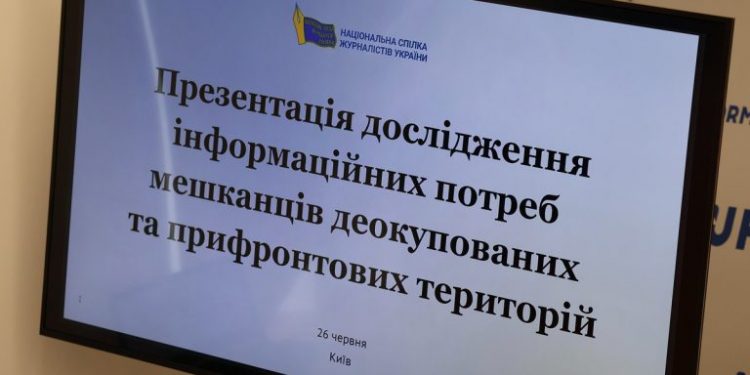
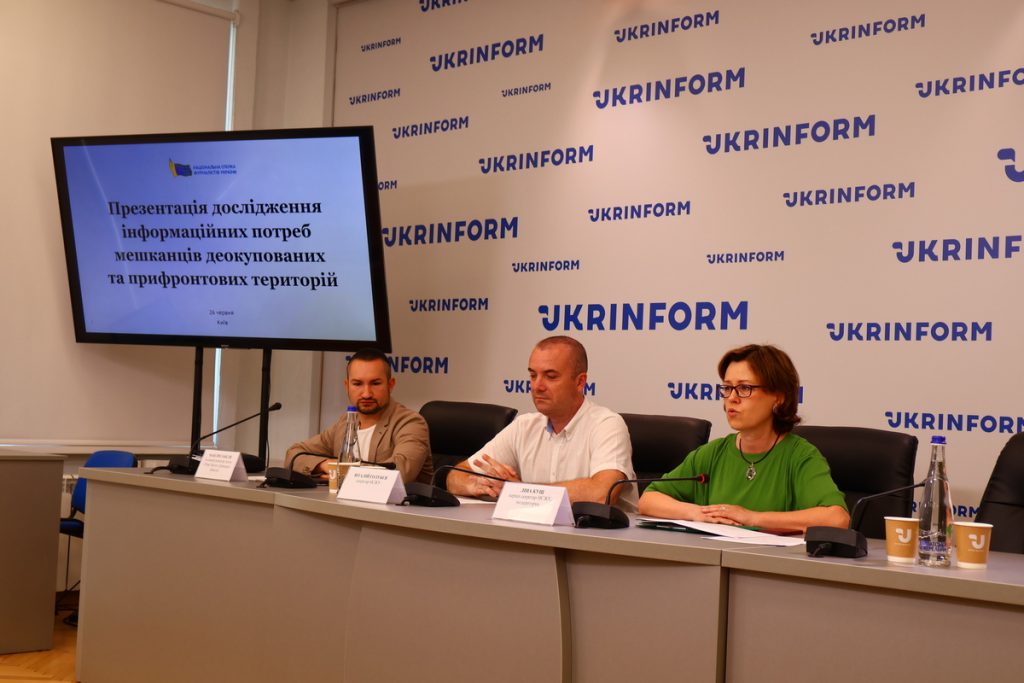
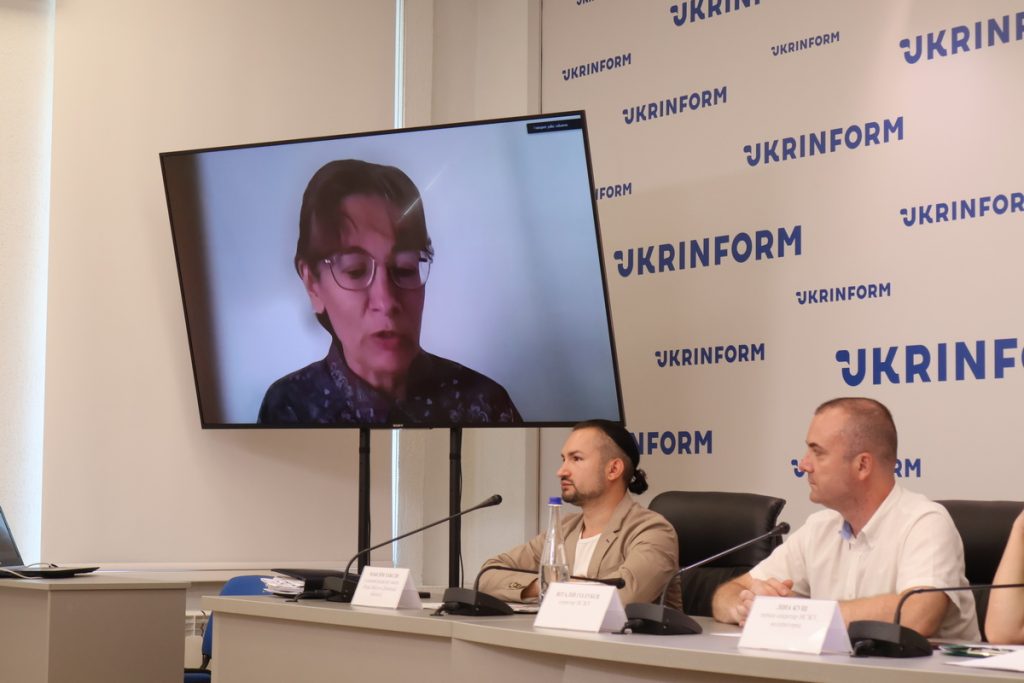
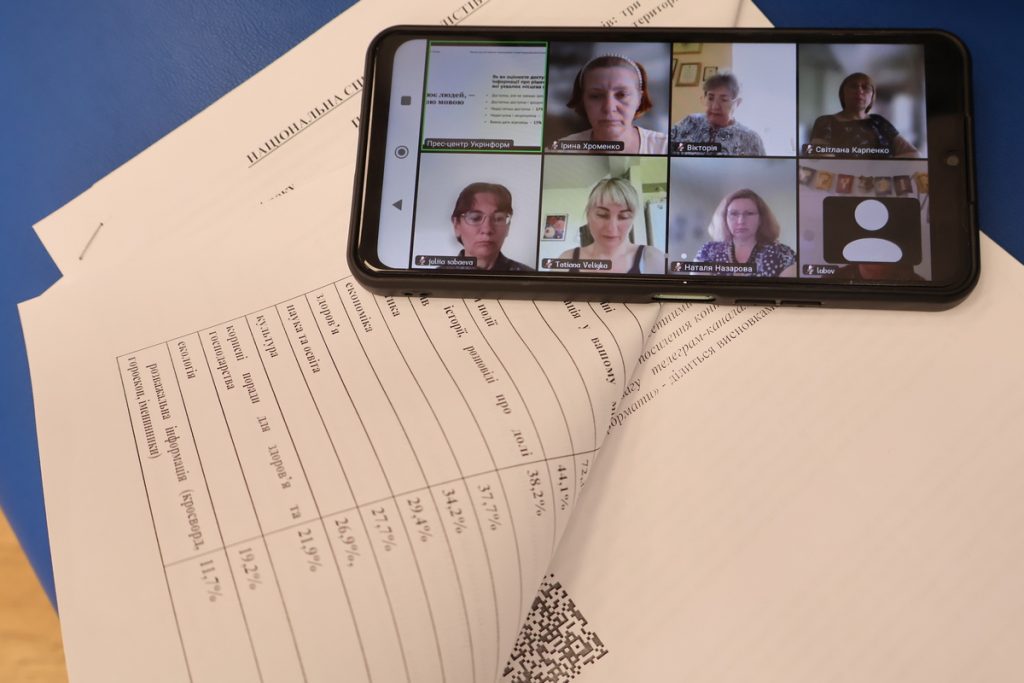
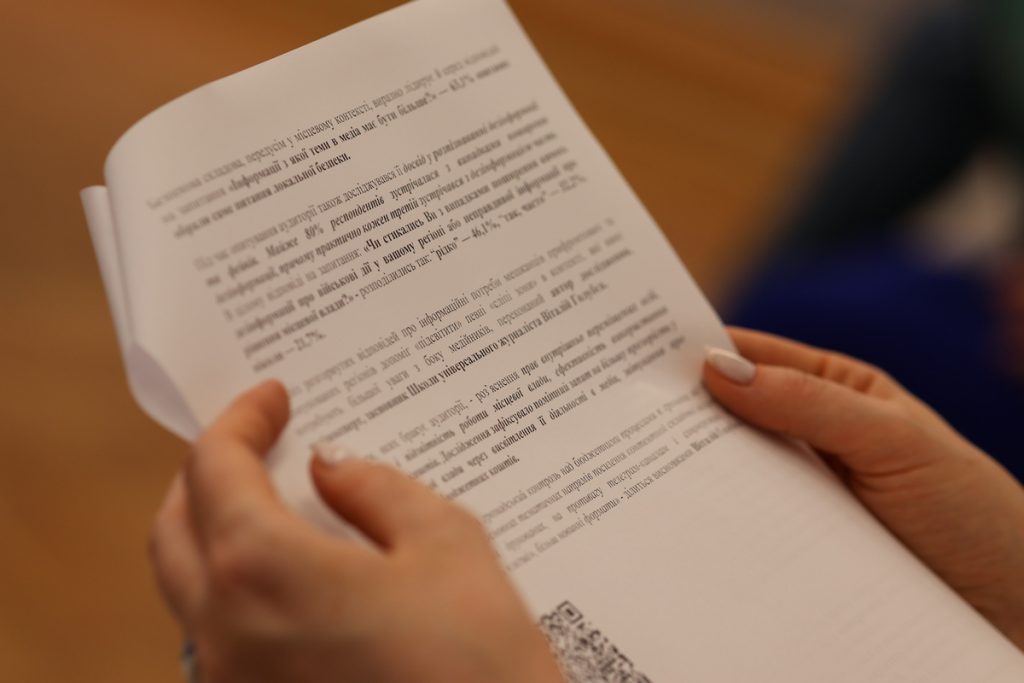
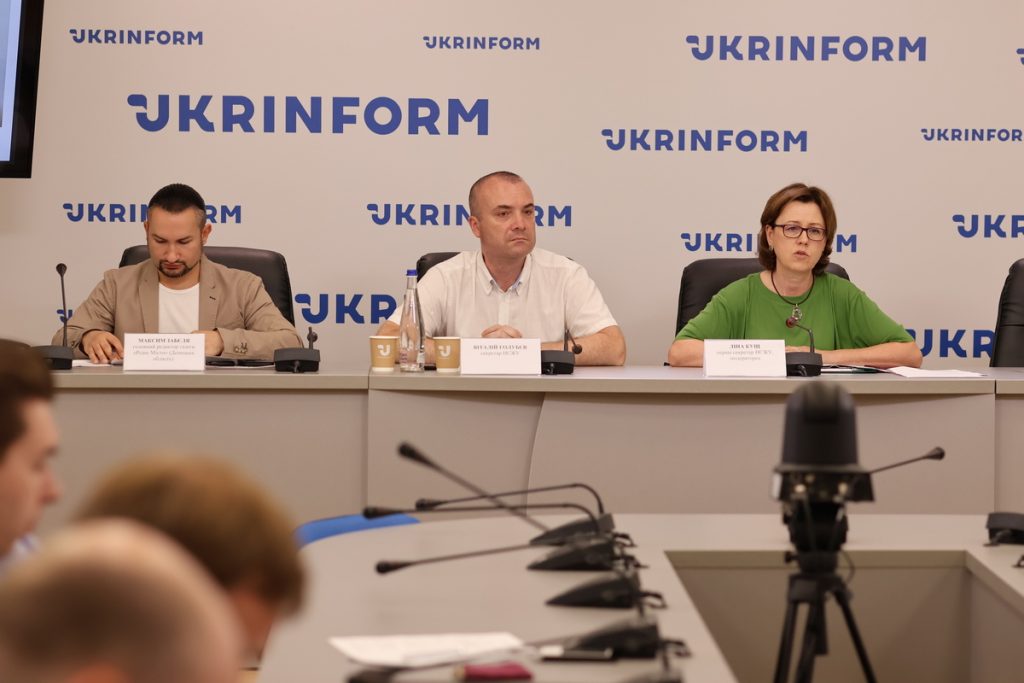
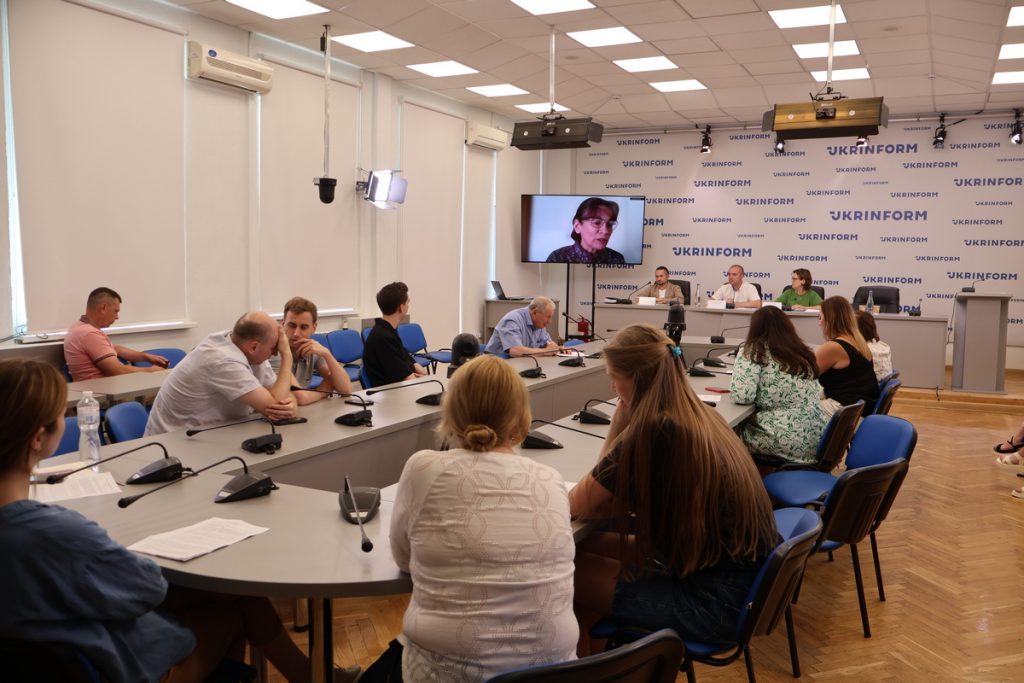
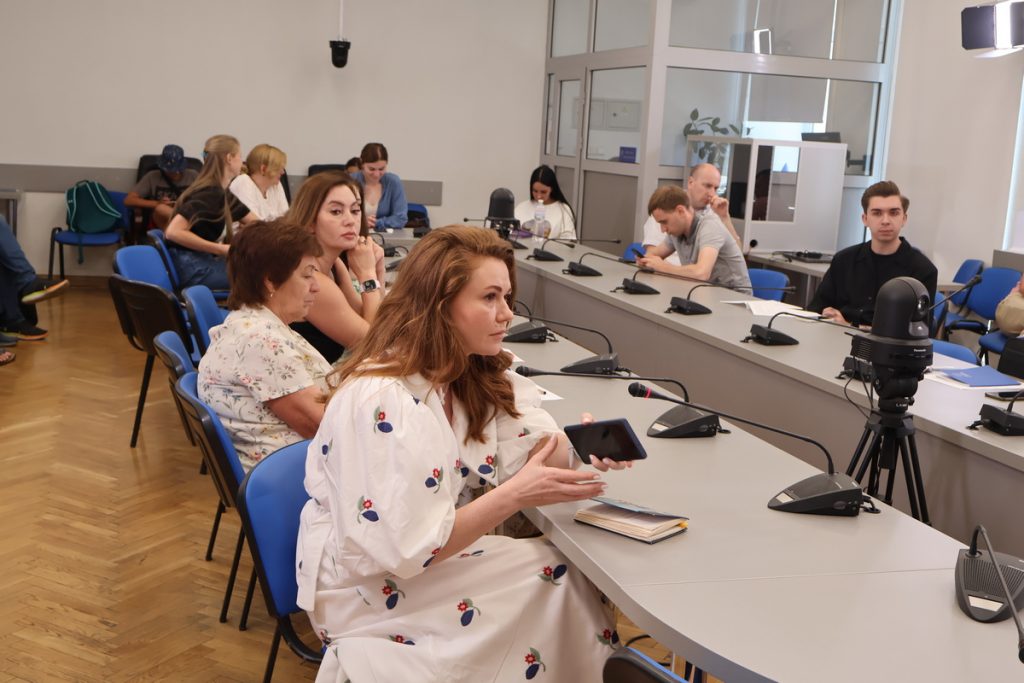
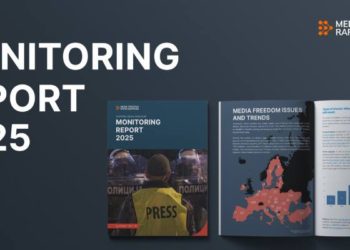
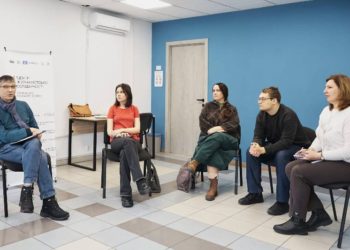














Discussion about this post